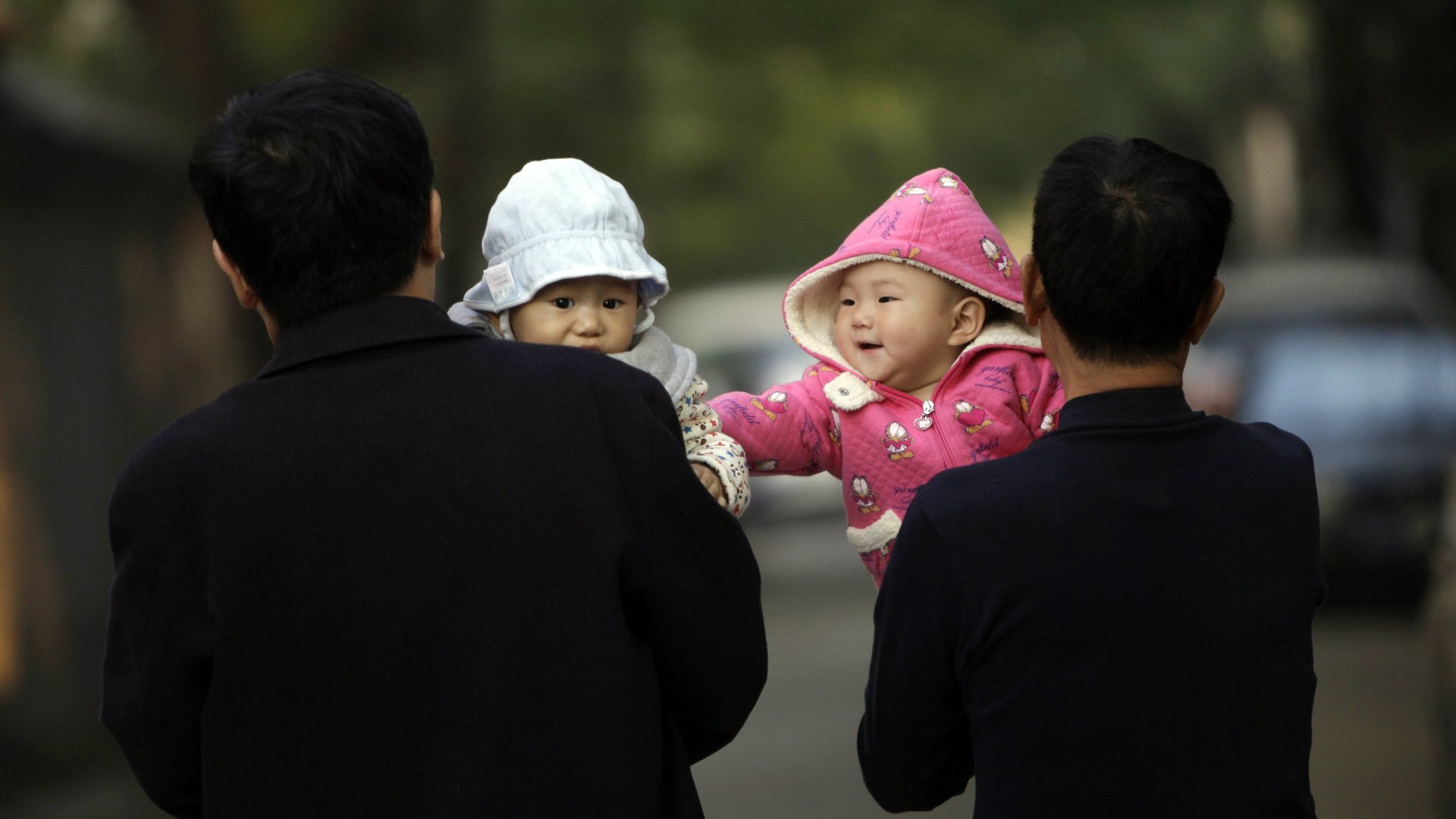Child trafficking in China often starts with parents selling their own kids
In China, anywhere from 20,000 to 200,000 children are abducted every year, either sent into forced labor or sold to quasi-legal adoption brokers. While many of these children were taken away by strangers in public places, public court documents from China indicate that child traffickers often have a willing accomplice—the child’s biological parents.


In China, anywhere from 20,000 to 200,000 children are abducted every year, either sent into forced labor or sold to quasi-legal adoption brokers. While many of these children were taken away by strangers in public places, public court documents from China indicate that child traffickers often have a willing accomplice—the child’s biological parents.
A reporter from China’s Southern Metropolis Daily studied court documents (link in Chinese) from 364 cases involving a total of 380 abducted children and 508 suspects. In 40 percent of the cases, the child’s biological parents sold their own children to other people, who sometimes went on to traffic them.
According to the study, the most common cause of child trafficking is China’s one-child policy. Implemented in 1980 and partially relaxed in 2013, the law imposes fines on families who give birth to two or more children. Families ill equipped to pay penalties on top of the costs of raising a child—food, school tuition, etc.— sometimes opt to sell their offspring.
But for others parents, trafficking their children is a source of cash. Southern Metropolis Daily cites one case where a Hunan couple initially sold their second child for 6,000 yuan (about $1,000), out of economic necessity. But after the first time, they continued to conceive, and sold their third and fourth child for 20,000 yuan (about $3,000) and 10,000 respectively. The court ultimately sentenced the father to six years in jail and fined him 20,000 yuan.
Other unfortunate circumstances can lead to parents willfully traffic their own children—the report cites anecdotes involving gambling debts, divorces, and deceptive spouses.
The court cases also reveal more about China’s marketplace for trafficked children. Of the 380 trafficked children from the court cases, 248 were male and 120 were female. Daughters tend to sell for an average of 10,000 yuan, while sons go for much more—an average of 45,000 yuan.
The study examines just a fraction of the total number of estimated kidnappings annually, so it is possible that this 40% number is too high, or too low. The study also only looks at incidents that have made it to Chinese courts.
Human rights and human trafficking experts in China told Quartz that the 40% figure wasn’t implausible. “There definitely are parents – a lot of parents – who sell their kids to traffickers,” says Charlie Custer, director of the 2013 documentary Living With Dead Hearts.
Parents who are publicly searching for their missing kids probably didn’t sell them, he said, because these searches can cost more than what a child would be worth to traffickers. “The ones selling their kids will often be trying to hide that they had a kid in the first place – when they discover they’re having a kid, they’ll go home to the countryside and lay low with some family so most of their social circle isn’t aware they even gave birth.”